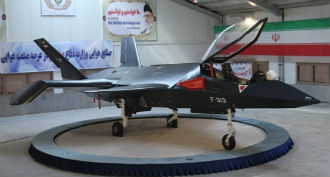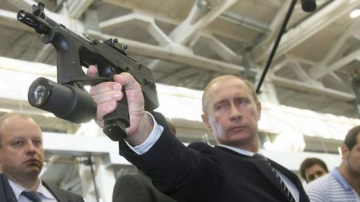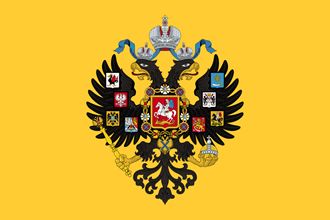 The Iranian PR machine pulled off another stunt over the weekend, proudly proclaiming that the country’s top boffins managed to develop a super advanced fighter jet. Dubbed the Qaher F-313, the mockup was unveiled during a ceremony to commemorate the 39th anniversary of the Islamic revolution and quite a few dignitaries turned up to spice up the show, including President Mahmoud Ahmedinejad and Defence Minister Ahmad Vahidi.
The Iranian PR machine pulled off another stunt over the weekend, proudly proclaiming that the country’s top boffins managed to develop a super advanced fighter jet. Dubbed the Qaher F-313, the mockup was unveiled during a ceremony to commemorate the 39th anniversary of the Islamic revolution and quite a few dignitaries turned up to spice up the show, including President Mahmoud Ahmedinejad and Defence Minister Ahmad Vahidi.
State media covering the event were quick to point out that the plane was indigenously designed and produced in Iran. Vahidi said the jet could evade radar thanks to its very low radar cross section and its capability to conduct low-level operations. Press TV reports that the aircraft is similar to the F/A-18 and the F-5E/F Tiger II, although it looks nothing like the two Northrop designed planes. In fact, the mockup looks like the lovechild of an F-35 and X-36, with one small difference. Iran’s stealth jet is a fake, and a bad one at that.
The images show a tiny jet with an oversized cockpit. The canopy material seems to be plexiglass and the cockpit is just plain ridiculous. It features a mix of cheap avionics for homebuilt aircraft, including an audio panel, transponder and NAV/COM courtesy of Garmin. Basically it is the sort of thing some ultra-light enthusiast would botch together in a shed. The avionics don’t even appear to be wired. The canopy mechanism is all wrong and even the size of the cockpit is ridiculous, as it doesn’t appear to be spacious enough to accommodate a pilot.

The air intakes are tiny, the wing doesn’t look like any airfoil NACA would bless with its stamp of approval, even on a bad day. There is no engine on board, either. The skin of the aircraft also looks funny, with plenty of imperfections on all surfaces. It also features huge, fixed canards and a tiny nose, way too small to accommodate a decent radar. It looks like something straight out of a video game and we would love to meet the poor coder who is supposed to develop its fly-by-wire software.
However, in spite of everything, plenty of journalists and anti-globalist conspiracy kooks fell for it, in what can only be described as a stunning display of gullibility. Some even went on to say that Iran already has a functioning prototype, since they couldn’t tell the difference between a tiny RC model shown in a state TV video and a 5th generation fighter jet. Apparently the sound of a screeching turbofan dubbed over the footage was enough to fool them.
Iran has a long tradition of rolling out vaporware and countless paper projects. Iranian spinners often talk about fancy defence projects, including indigenous tanks, missiles and superfast torpedoes. Most of them never get built in any significant numbers, so Iran’s defence projects are a bit like Google’s Nexus gear. In this case, it’s more of a paper mache affair than a paper project.
On a related note, last month Iran announced that it managed to send a monkey into space and bring it back safely to the earth. However, western observers now claim there is no evidence that the suborbital flight was successful. Iran released some press photos of the monkey, but on closer inspection it turned out that the images show two different animals. One of them apparently bought the farm.
 More tales of poor sales of PCs have emerged.
More tales of poor sales of PCs have emerged.


















